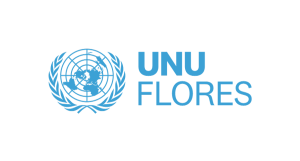
UNU-FLORES offers two exciting internships aimed at Master students in Geography, Geology or Earth Sciences as well asEnvironmental/ Agri-Food/ Civil/ Socio-Economics/ Health.
Link to institution: https://unu.edu/flores
Governance for Sustainable and Resilient Agri-Food Systems: A Coupled Citizen Science and Nature-based Solution Approach
Host Institution:
United Nations University Institute for Integrated Management of Material Fluxes and of Resources (UNU-FLORES)
Duration:
2-3 months, earliest July 2025
Suitable for:
suitable for students in Master’ programs in Environmental/ Agri-Food/ Civil/ Socio-Economics/ Health
Internship location:
Dresden, Germany
Tasks and Responsibilities:
The intern shall work on the project titled Governance for Sustainable and Resilient Agri-Food Systems: A Coupled Citizen Science and Nature-based Solution Approach. The project investigates the potential of the decentralized upscaling of CS-NbS coupling in the case of the Evapotranspiration Tank (TEvap) as a NbS at the interface of agri-food, WASH and Material waste on transforming the participation of stakeholders in agri-food systems’ governance. Depending on the skillset of the intern, they shall support the project manager along some of these avenues, including but not limited to the literature review, analyzing and interpreting the results of surveys, interviews, and participatory workshops, performing Cost-Benefit Analysis (CBA), supporting a master student with fieldwork at the experimental hall of TU Dresden, looking and preparing material for funding applications. The intern shall work under the direct supervision of Taha Loghmani, a joint Doctoral Researcher at UNU-FLORES and TU Dresden’s Hydro Science and Engineering Department’s Groundwater Institute.
Depending on the overall project status, tasks may include reviewing literature, researching for relevant funding streams, analyzing and interpreting surveys, interviews, and workshop results (Fuzzy Cognitive Mapping), contributing to writing scientific reports, as well as a potential to support experiments on a NbS at the interface of agri-food and WASH systems.
Internship main fields of expertise and skills the intern can expect to learn/ improve: Mixed-method research including quantitative surveys and qualitative interviews / Participatory research methods/ CBA/ Funding applications/ Scientific writing/ In-situ experiments.
Applicant profile:
- Further qualifications should have experience in participatory modeling, knowledge of systems dynamics, expertise in WASH, Circular Economy and Waste Management.
- The student should have an interest to continue graduate/postgraduate education; Experience in writing publications, and research;
- Strong communication skills in English are essential. Proficiency in German, Portuguese, Persian, or any African language is an added value.
- Experiences in Microsoft Office is mandatory. The rest can be learned.
Link to institution: https://unu.edu/flores
The Resource Nexus Approach to Post-Industrial Transformation
Host Institution:
United Nations University Institute for Integrated Management of Material Fluxes and of Resources (UNU-FLORES)
Duration:
2-3 months, earliest July 2025
Suitable for:
suitable for students in Master’ programs in Environmental/ Agri-Food/ Civil/ Socio-Economics/ Health
Internship location:
Dresden, Germany
Tasks and Responsibilities:
The intern will work with The Resource Nexus Laboratory: Dr. Alexey Alekseenko and Mr. Rajeev Ranjan.
Expected tasks and responsibilities: Conduct a literature review on German and Taiwanese studies related to post-industrial transitions. Engage in social media outreach and participate in events focused on land revitalization. Assist with field sampling of soils and sediments in the Saxon post-industrial region. Support laboratory work, including sample preparation for chemical and physical analysis.
Through this internship, the intern will develop expertise in conducting literature reviews, particularly in the context of post-industrial transitions, and gain a deeper understanding of the environmental and social dynamics in both German and Taiwanese settings. They will improve their communication skills through social media outreach, learning how to effectively engage with audiences and promote research. The intern will also acquire hands-on experience in field sampling, honing their skills in environmental data collection, specifically related to soils and sediments. Additionally, they will gain proficiency in laboratory work, especially in preparing samples for chemical and physical analysis. Finally, the internship will enhance their ability to collaborate across disciplines, providing valuable insight into the intersection of research, environmental science, and land revitalization efforts.
Applicant profile:
The candidate for this internship should have a background in environmental science, geography, sustainability, or a related field, with coursework or knowledge in post-industrial transitions, land revitalization, or environmental management. Prior research experience, particularly in conducting literature reviews and synthesizing academic studies, would be advantageous. Fieldwork experience, especially in environmental sampling or data collection, is highly desirable, along with familiarity with soil and sediment sampling techniques. Laboratory skills, including sample preparation and experience with chemical or physical analysis, are also beneficial. Knowledge of social media outreach and science communication would be an asset, as the candidate will be expected to engage with the public and promote research. Proficiency in data analysis tools like Excel or GIS is useful, and familiarity with environmental modeling would be a plus.
The candidate should be able to collaborate effectively in international and interdisciplinary teams, demonstrate organizational skills, and show a strong interest in environmental issues, particularly those related to post-industrial regions. Adaptability, motivation, and the ability to work independently will be key to succeeding in the research setting.
Strong communication skills in English are essential. Knowledge of German would be an advantage, even though not mandatory.
Experiences in GIS is a plus, but not mandatory. The intern should have an interest in continuing graduate/postgraduate education as well as experience in writing publications, and research.
Link to institution: https://unu.edu/flores


 English
English